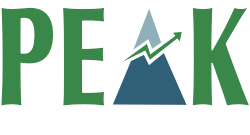
Eggs are undoubtedly one of my favourite foods. They are quick and easy to prepare, super versatile and pretty darn cost effective too! But head into any grocery store and you’ll be confronted with the “WALL OF EGGS”. Natural, cage free, free range, pasture raised – suddenly the simple egg got a lot more complicated! Are the 5.99/dozen eggs really better for me than the 3.99/dozen brand? What’s the difference between cage free and free range? Let’s “crack” the code on this once and for all!
WHAT DOES IT ALL MEAN?
If the wide variety of terms on those cartons has got you confused, use the list I’ve created below to identify which terms have clout and which are just marketing fluff.
Regular (No Special Label)

Eggs without any other qualifying label on them are generally laid by hens fed a conventional, vegetarian diet. The hens are often caged or kept indoors without access to natural light or the outdoors. As they are kept in close quarters, they may also be debeaked to prevent them from pecking each other.
Natural/All Natural

These are purely marketing terms meant to trick the purchaser into thinking they are buying a superior product. There is no certification or verification needed to use these terms. Hens are likely fed and raised in the same conditions as those producing “regular” eggs.
Farm Fresh

Sounds great, but here is another term that has no regulation. These eggs can come from large industrial facilities and caged hens.
Free Range

Finally, a label with meaning! To use the “Free Range” label, producers must prove that the hens have been allowed access to the outdoors for at least 51% of their lives. BUT – and it’s a big but…there is no regulation regarding either the type or size of outdoor space. They could have access to dirt, a cement covered patio or pasture. As there is no regulation with regards to the size of the outdoor space, overcrowding is not uncommon and de-beaking is permitted.
No Antibiotics Added

This is another sneaky label. Producers are not allowed to sell eggs from hens treated with antibiotics and must wait a specified period of time after treatment is complete before they can sell the hen’s wares. In short, ALL eggs are antibiotic free.
Certified Organic

Organic eggs are laid by hens who are fed organic feed (free of pesticides and chemicals). There is no regulation as to how they are housed or the amount of outdoor access they have and, again, de-beaking is allowed.
Omega-3-Enriched

Hens are fed a vegetarian diet higher in Omega-3 fatty acids. This is often accomplished by adding flax seed to the diet. Again, there is no regulation as far as housing of the hens.
Cage Free

Hens are raised without cages, but this does not mean they have access to the outdoors. Often they are kept in large warehouses and in crowded conditions. Beak trimming is permitted.
Vegetarian Fed

Well, for starters, chickens are omnivores. Their natural diet would include protein from insects and worms, along with nutrients found in grasses. Vegetarian feed contains no animal products and would derive it’s protein from vegetarian sources, like soybeans. So really, a solely vegetarian diet is not a chicken’s natural diet.
Pasture Raised

This term implies that the hens are allowed full access to the outdoors to meander around the pastures are able to forage around for those bugs and grubs that are part of their natural diet. This isn’t a legal or regulated definition, so you want to do your homework to ensure the producer’s claim of pasture raised is accurate! Some companies, like Vital Farms, print the name of the farm where the eggs were produced on their cartons. You can go to their website and search for the farm to see the chickens in their pasture. Another great way to do ensure you are getting what you paid for is to get your eggs directly from the farmer!
Budget is always going to be a factor when we are filling our grocery cart, but how the animals are raised and fed should also hold some weight. In my next post in the series, I’ll discuss a couple of eggy myths and misconceptions before I dive into my final post on whether or not eggs are a valuable part of a nutrient dense, whole foods diet (spoiler alert…heck yes they are!).
Sources
Dessy, M. (2017). The Pantry Principle.Versadia Press
Food Labels Exposed [Booklet]. (2018). N.P.:A Greener World


2 Replies to “Eggs – A Carton of Confusion?”